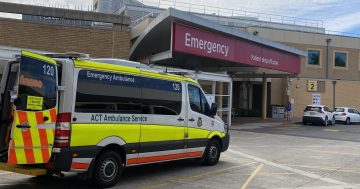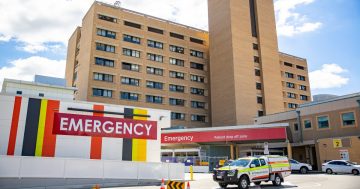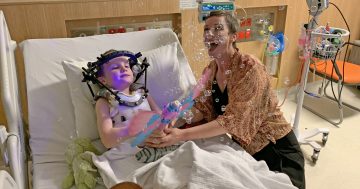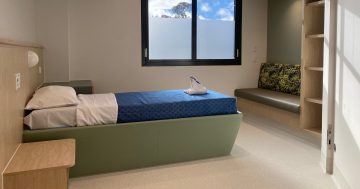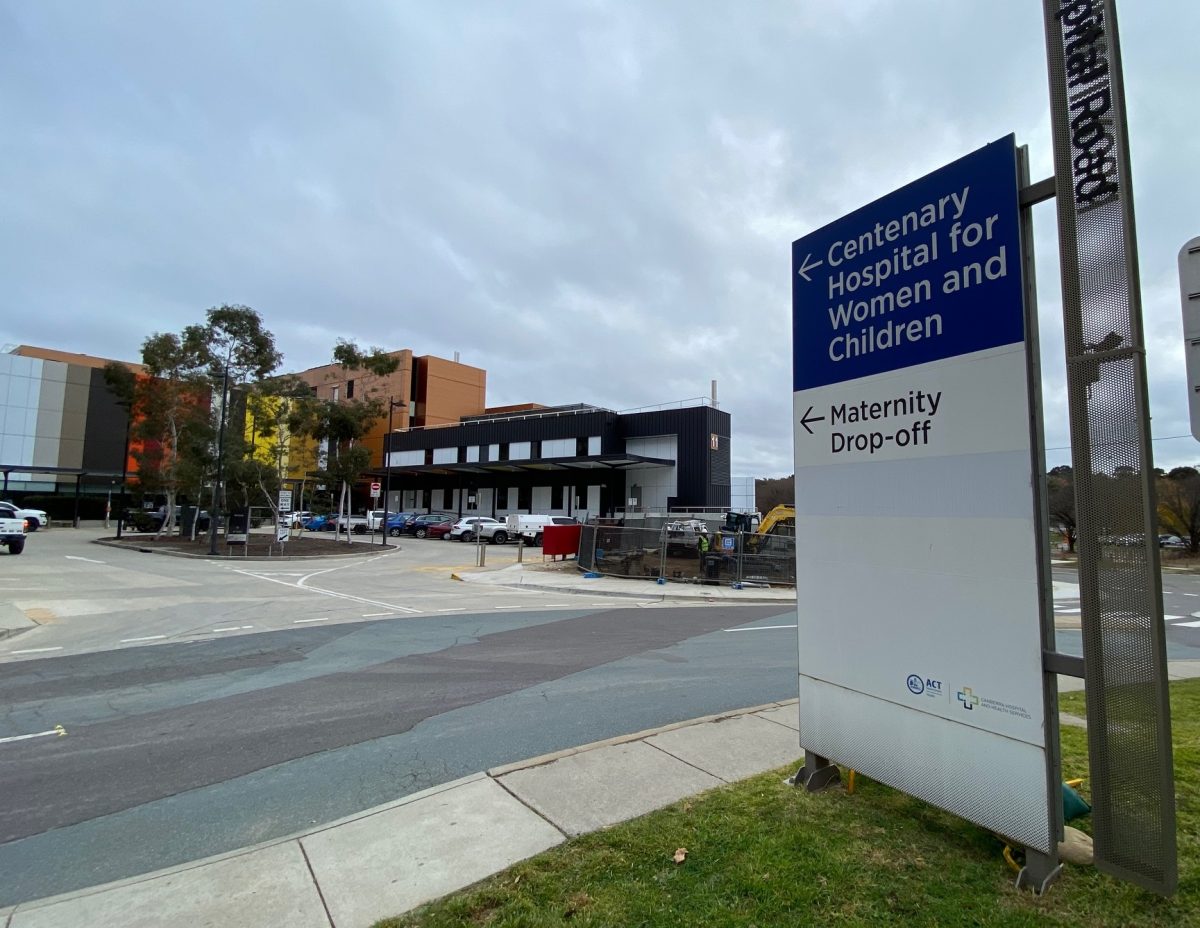
The concerning review of the Centenary Hospital for Women and Children’s obstetrics and gynaecology unit has highlighted multiple issues that could put patient safety at risk. Photo: Claire Fenwicke.
“Highly concerning” failures at Centenary Women’s and Children’s Hospital have been identified by Australia’s peak body in obstetrics and gynaecology, which could present “significant risks to patient safety”.
Cultural issues, lack of awareness of critical incident management, unacceptable overtime hours, non-compliance with on-call attendance and “multiple instances” of trainees being encouraged to perform work outside their scope are some of the issues persisting at the obstetrics and gynaecology unit.
The Royal Australian and New Zealand College of Obstetricians and Gynaecologists (RANZCOG) gave the unit provisional accreditation for training in June 2023 after its draft report showed it had failed five out of six accreditation standards.
A follow-up visit in November showed while there had been improvements in some areas, issues persisted in others, which “highlighted significant risks to patient safety”.
“This is particularly evident in areas of consultant support after hours and participation in the on-call roster, when there have been repeated incidents of non-attendance and reluctance to support registrars overnight,” the report noted.
“Workplace culture issues continue to be exacerbated by short staffing (although it is evident that there is a significant body of work underway to address this) and poor communication at all levels.”
Reports of staff not turning up when on-call was of particular concern.
“There must be clear consequences for those who do not comply with expectations regarding on-call attendance,” the report noted.
“The potential patient safety impact if this continues unchecked is highly concerning.”
It also found multiple instances where trainees were requested or encouraged to perform procedures and work outside of their scope, and they still weren’t being adequately supported with training opportunities and education.
The unit reported a significant fall in workplace satisfaction in the 2023 Medical Training Survey, with only 14 per cent of staff recommending their workplace as a place to train, compared to 46 per cent in 2022.
Issues were also identified with shift handovers at the birthing suite, with that standard slipping from ‘partially met’ to ‘not met’.
The report noted while some positive changes had been made, there was still inappropriate criticism of night staff.
“It is a clinical risk if doctors feel unsafe to honestly hand over patients, including what they do not know,” it stated.
“There is no value in nit-picking over management decisions, especially when fatigued … Consistency of plans is important to the patient experience, and changes to plans from the oncoming team should be mindful of this.”
Reported hours worked were also extremely high; in some cases, staff worked more than 110 hours a fortnight.
RANZCOG has granted the unit another six months of provisional training accreditation and another site visit scheduled for April.
A Canberra Health Services spokesperson said the report’s results were “concerning”, and the organisation was “committed to acting swiftly” to improve.
“[We] will continue to prioritise patient care as we make the necessary improvements,” they said.
The report noted that the unit had made some good progress in a relatively short time, including “marked improvement” in ultrasound training and improving rosters to allow training supervisors to have more input based on the needs of their trainees.
CHS has recruited additional specialists and is working to improve the training and support for junior doctors.
A psychologist has been embedded in the junior medical officer welfare team, new visiting medical officers were onboarded in February, the number of senior medical officers has increased, the maternal-fetal medicine fellow position has been filled, and a new obstetrics lead and gynaecology lead have been appointed.
Further recruitment drives for the unit are planned for this year, including recruiting skilled GPs to undertake antenatal clinics.
The Canberra Liberals are disappointed but not surprised with the results, given the long list of training accreditation issues with hospital units in the past year.
The Opposition has previously called for a Royal Commission into Canberra’s healthcare system, and Shadow Health Minister Leanne Castley re-committed to holding one if her party won the October election.
“This [issue] was reported on in 2010, 2014, last year and … now nothing has improved,” she said.
“This is not good enough. They’ve had 20 years. The government has constantly underfunded the health system and now it is clearly broken.
“When the [Health] Minister says there are ‘known challenges’ and then nothing changes for a significant amount of time, then what is she doing?”














